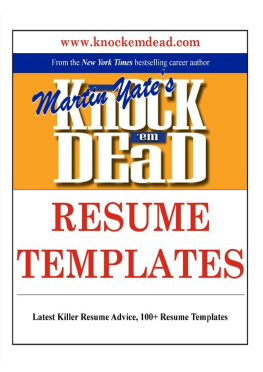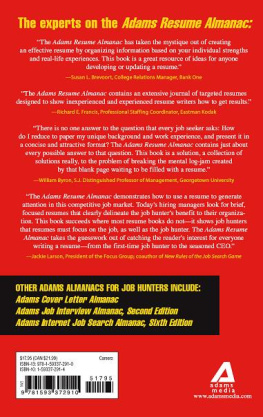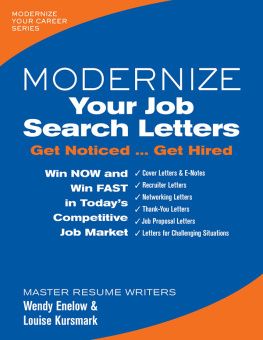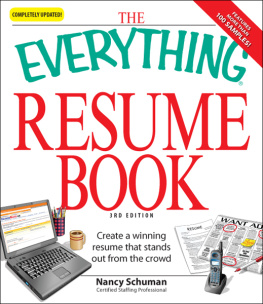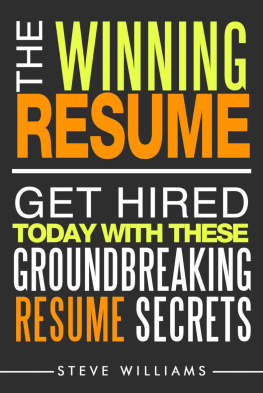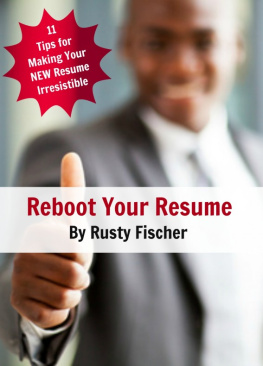Craft Your Kickass Resume
Craft a powerful resume with this 11 step action-oriented framework
By Chris Alexander
Craft Your Kickass Resume
Copyright 2021 by Chris Alexander.
All Right Reserved.
No part of this publication may be reproduced, distributed, or transmitted in any form or by any means, including photocopying, recording, or other electronic or mechanical methods, or by any information storage and retrieval system without the prior written permission of the publisher, except in the case of very brief quotations embodied in critical reviews and certain other noncommercial uses permitted by copyright law.
LESSON ROADMAP
Discover how the resume was invented in the 1400s and how it was used as a conversation starter.
Learn how to mine job listings for specific skill keywords employers are looking for, and build your resume around these keywords.
Follow the fundamentals of storytelling to package your achievements into high-impact 30-second sound-bytes.
Deconstruct your micro-stories, rebuild them into results-oriented bullet points, and tell your short bursts of information.
Explore how an organization generates revenue and learn how to position your experience for maximum relevance to any employer.
Attach real-world numbers to your achievements to make them measurable, comparable and defensible.
Declutter your resume to learn how to deliver important information in a short amount of time.
Get a crash course in the world of typeface design and how to pair fonts for optimal readability.
Use headers as visual anchors to lead the eye and improve your page layout with visual ratios.
Design your resume to evade Applicant Tracking Systems (ATS) and avoid the shred bin.
Adapt and evolve your resume with each interview experience, and treat it as a living document that grows with you over time.
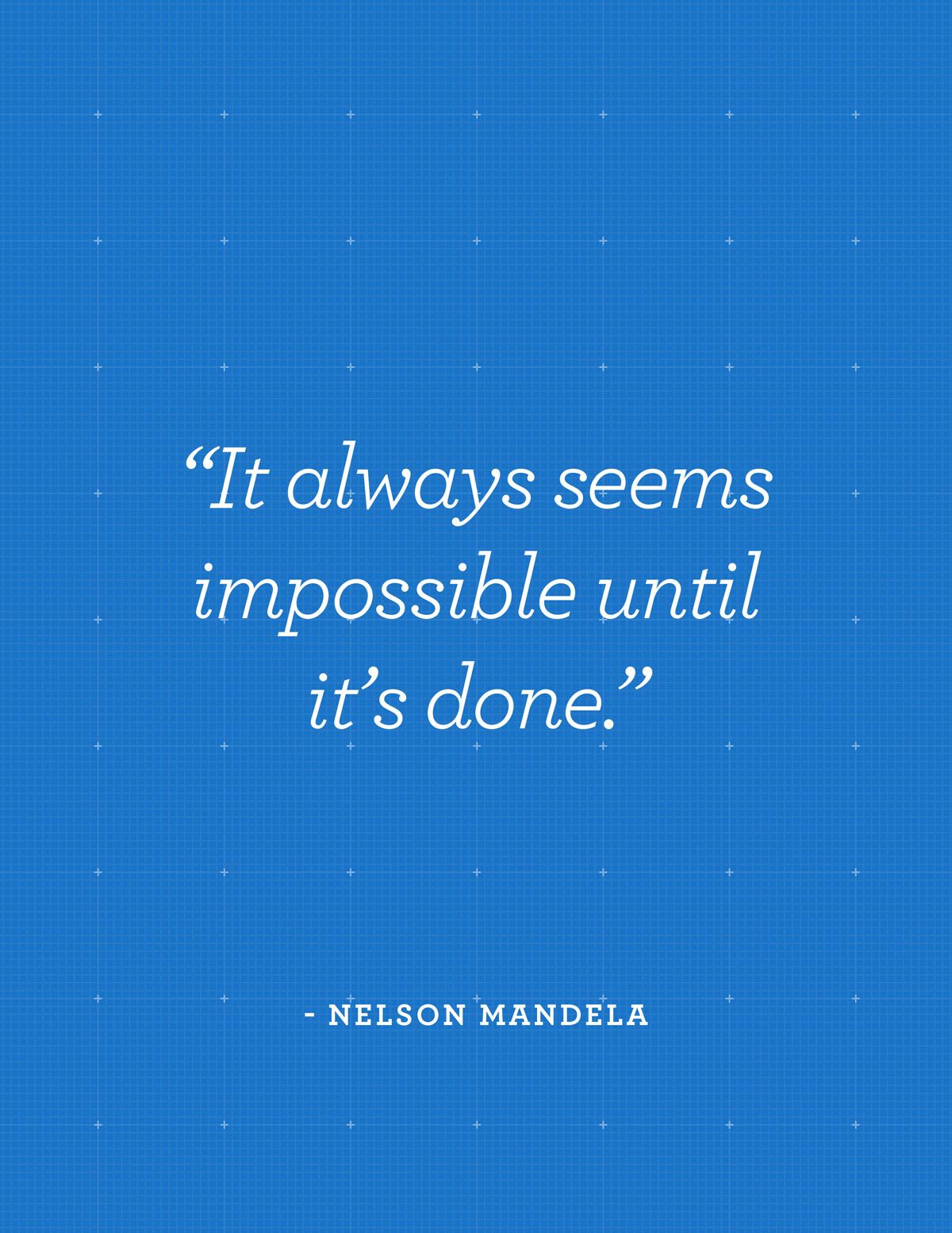
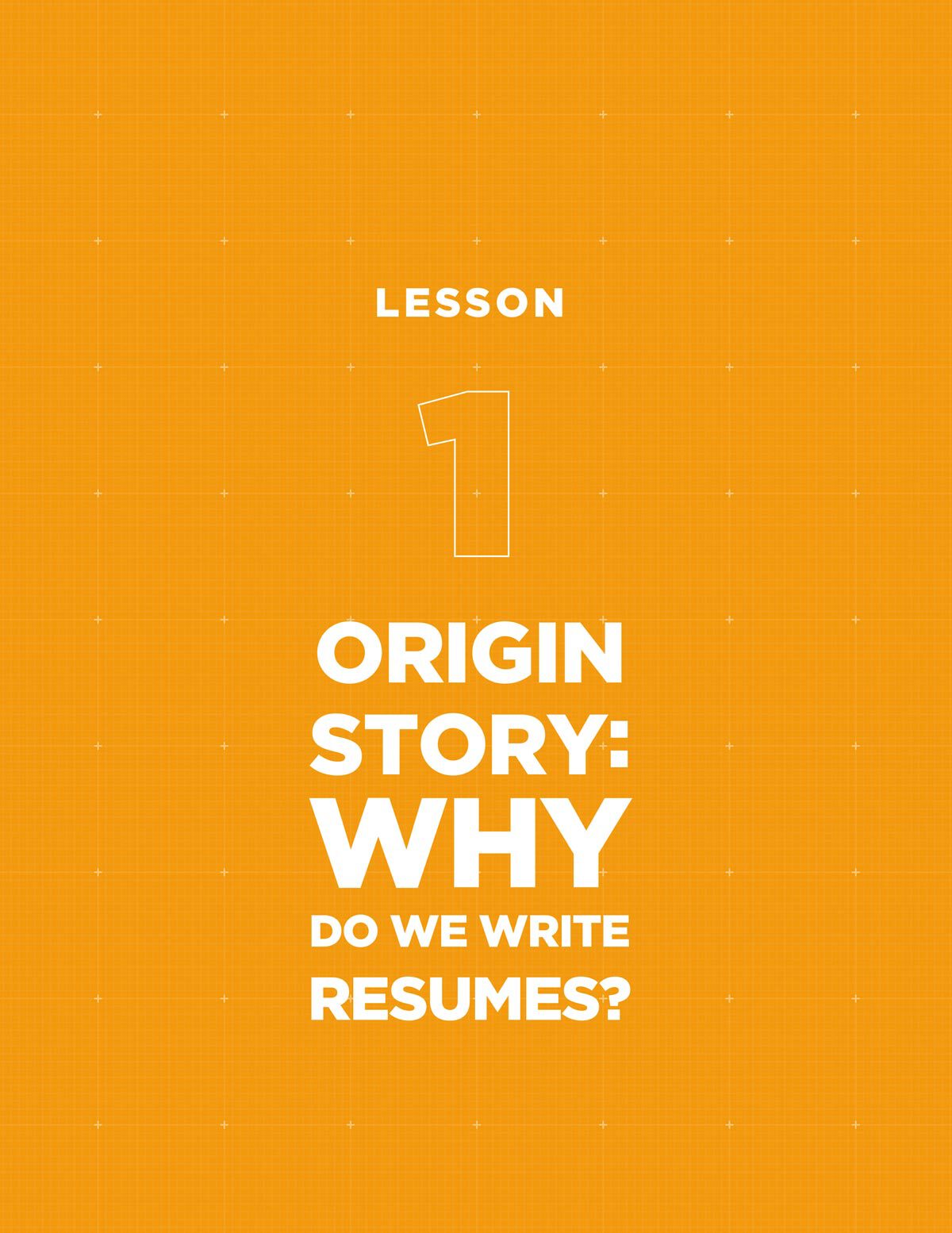
ORIGIN STORY: WHY DO WE WRITE RESUMES?
Lets take a trip to Florence, Italy. The year is 1482. A local artist is looking for a job in a highly competitive market full of other artsy dudes like Botticelli and Verrocchio. Several years before painting the Mona Lisa, Leonardo Da Vinci, invented the resume. Da Vinci wrote a letter to the Duke of Milan, hoping to find a job elsewhere. In this letter, Leonardo introduced himself and, like any eager job-seeker, included a list of his skills. This list illustrated eleven different ways he could help the Duke out with his problems. Which skills ranked at the top of this list? Bronze sculpture? Figure painting? Nope! More like designing indestructible fireproof bridges, destroying castle walls and constructing terrifying death-machines like cannons, chariots and mortars.
Known as an artist, inventor, and all around genius, Da Vinci used this letter to demonstrate how his skills could help the Duke arm his troops and conquer nations. Leonardo focused the conversation not on himself, but on the Duke and his needs. From a hand-written letter in 1482 to a formal typewritten document in the stuffy corporate culture of the 1950s, the purpose of the resume hasnt changed all that much. It evolved to become a form of professional currency in the modern worlda way to prove your worth on paper. Today, just like the late 1400s, the job search process is at its core a communication exercise. Its no different from asking a friend to help you move a couch or agreeing on where to meet up for a second date. Two people come together, each wanting certain things, and talk it out. A resume is simply a tool we use to begin this conversation. Now that we know how resumes began and what they are, lets wrap up with our first action step and takeaway
ACTION STEP
Ask yourself this question: What keeps your target employer up at night? What are their goals? Is it selling insurance policies? Diagnosing illnesses? Raising money? Make a list of their NEEDS and begin to think about how your skills can match those needs.
TAKEAWAY
The job search process is a communication exercise, and resumes are the tools we use to begin this conversation.
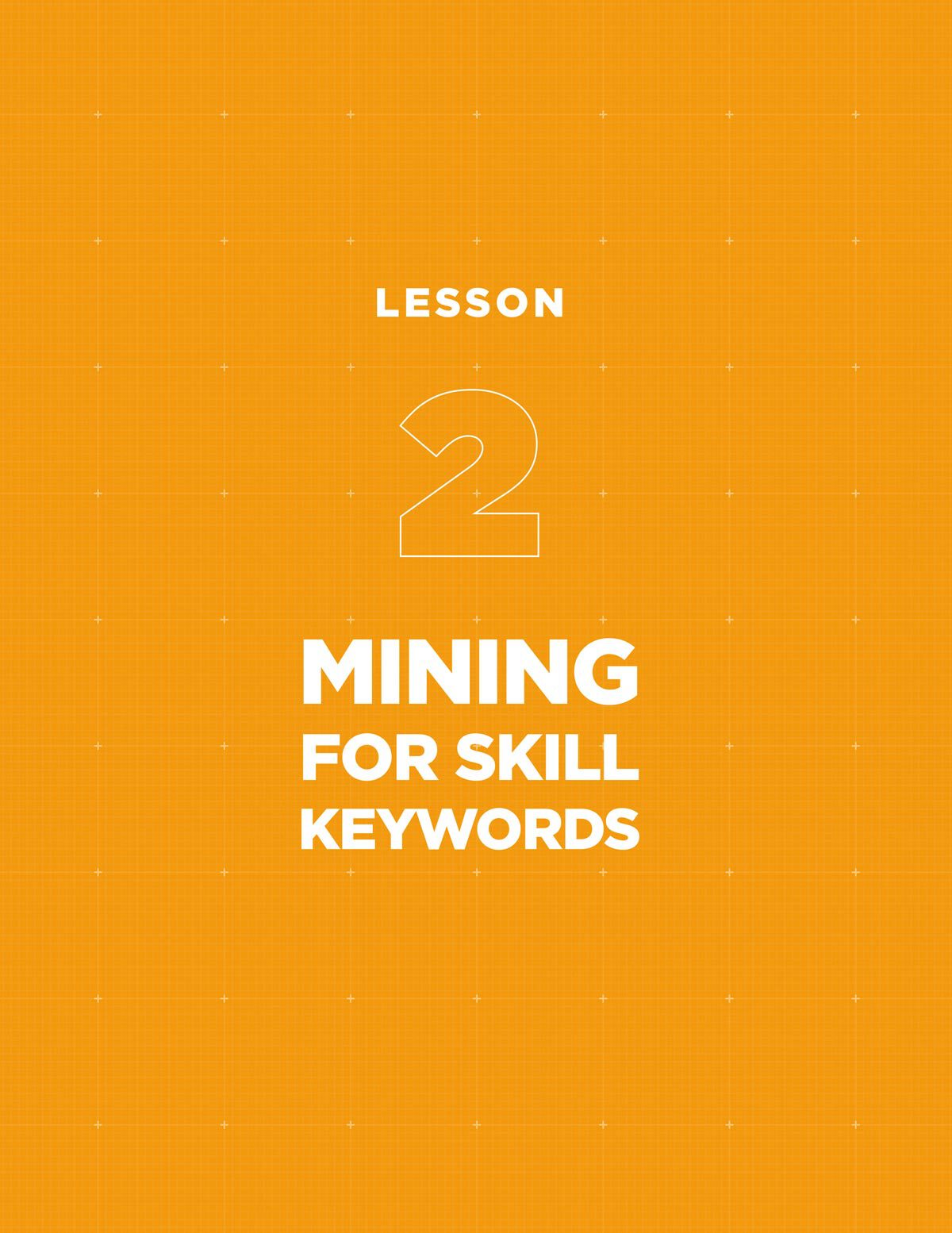
MINING FOR SKILL KEYWORDS
When reading your resume, hiring managers spend most of their time skimming basic information like company names, job titles and dates of employment. Theyre asking themselves Does this person have the basic experience required to actually do the job? During this quick skim process, a hiring manager can usually get a pretty good sense if youre a potential candidate, or youre heading for the shred bin. Hiring managers also skim for the same keywords that they included in the job posting. Maybe having previous experience with Salesforce, or Adobe Creative Suite, or advanced Excel or Tableau is vital to this job. If you dont have those keywords, they move on to the next resume. Thats it. That was your chance to knock their socks off in 6 seconds.
In the previous lesson, we learned that the resume is a tool to begin the conversation.
Now were going to:
Gather data from a job search engine
Use word-cloud software to extract industry keywords
This process of extraction (data-mining) will teach us about the most important element behind every conversation: having a common language and vocabulary. In order to achieve maximum outcome (interviews) with minimal input (time), you can never write in a vacuum. You need to get out into the world and do some research.
Ready? Okay! Put on your hard hat and lets dive in!
First, we need a job search engine that will give us a gazillion search results about your target job.
My favorites are indeed.com, LinkUp.com and Linkedin Jobs Search, but there are others such as ZipRecruiter, Glassdoor and Handshake that can also be useful. Its best if you browse several of these resources to find one that you prefer.
For the purposes of this tutorial, I will use indeed.com. Well use their advanced search feature and type in as many specifics about your target job as possible, including geographic region.
The more realistic our search results, the more data we will have about how employers talk about that job. This will eventually let us optimize your resume to make our conversation with them easier.
For this example, well look for an entry-level job in, lets say, marketing. Well look for one within, say, 5 miles of New York, NY. That will get us started. You can follow along by using the specifics of your own target job and industry. Now we just click Find Jobs, and were off to the races! The search engine will spit out a whole bunch of jobs for us.
We now have a selection of job listings to work with. Were all set!
Take a glance at them. The first thing you may notice is that theres no standard format for job listings. This is because every company has their own definition of skills, and treats these skills differently. Its the Wild West out there a no-rules free-for-all that can be challenging to navigate. But every challenge is an opportunity in disguise. Heres your opportunity to be creative and cut through the noise.
From your list of search results, choose at least 10-15 listings, and open each listing in a new tab (Windows: Ctrl-click; Mac: Command-click) so that you can easily navigate back and forth between the listings .






